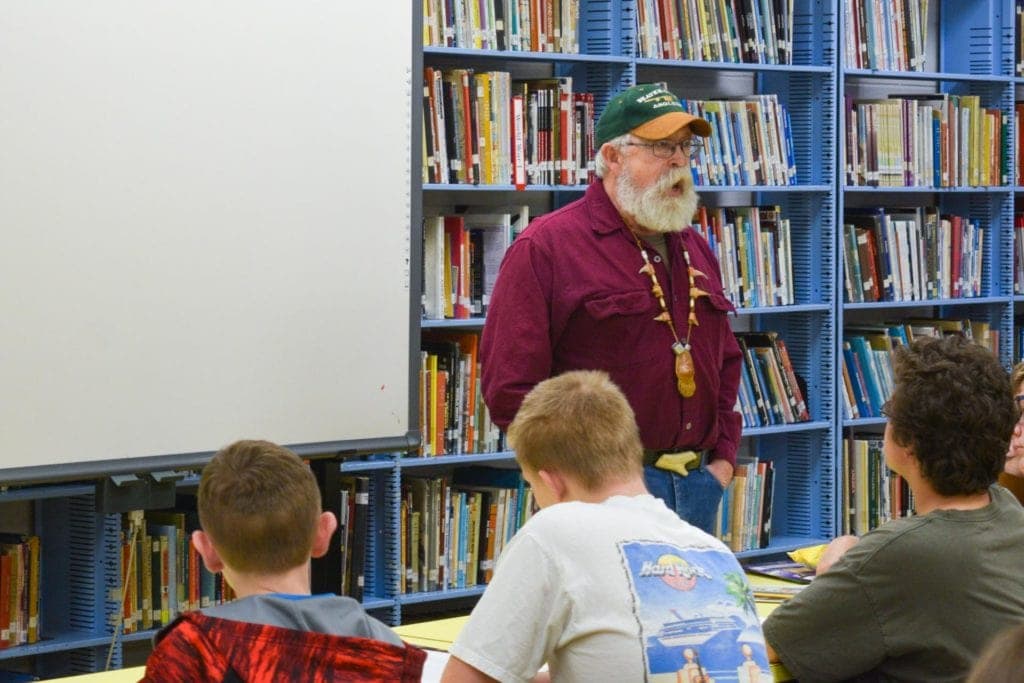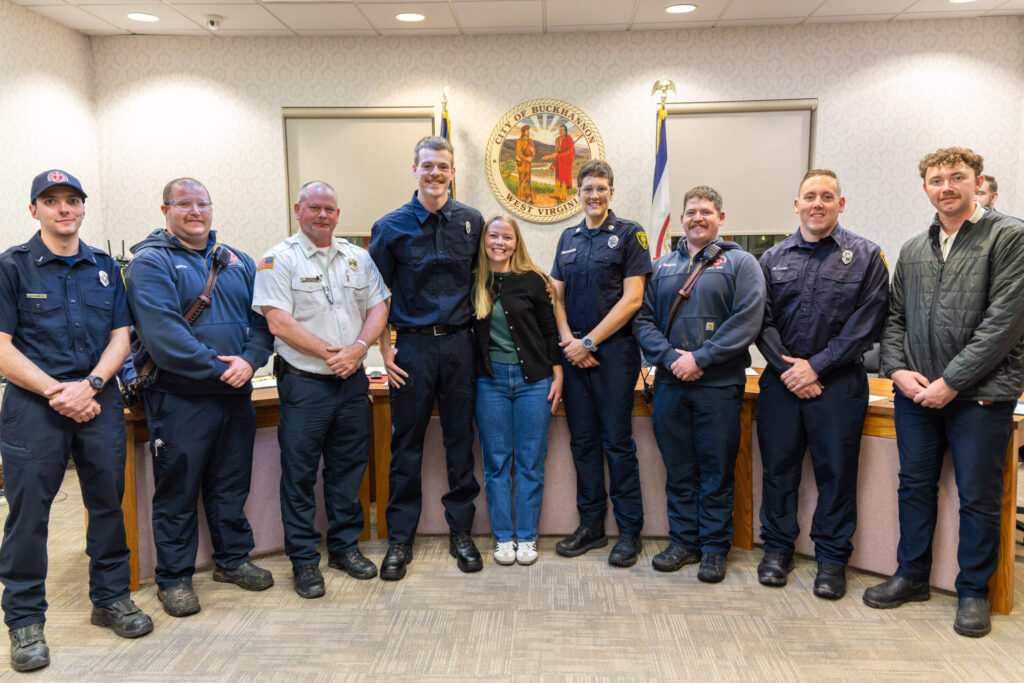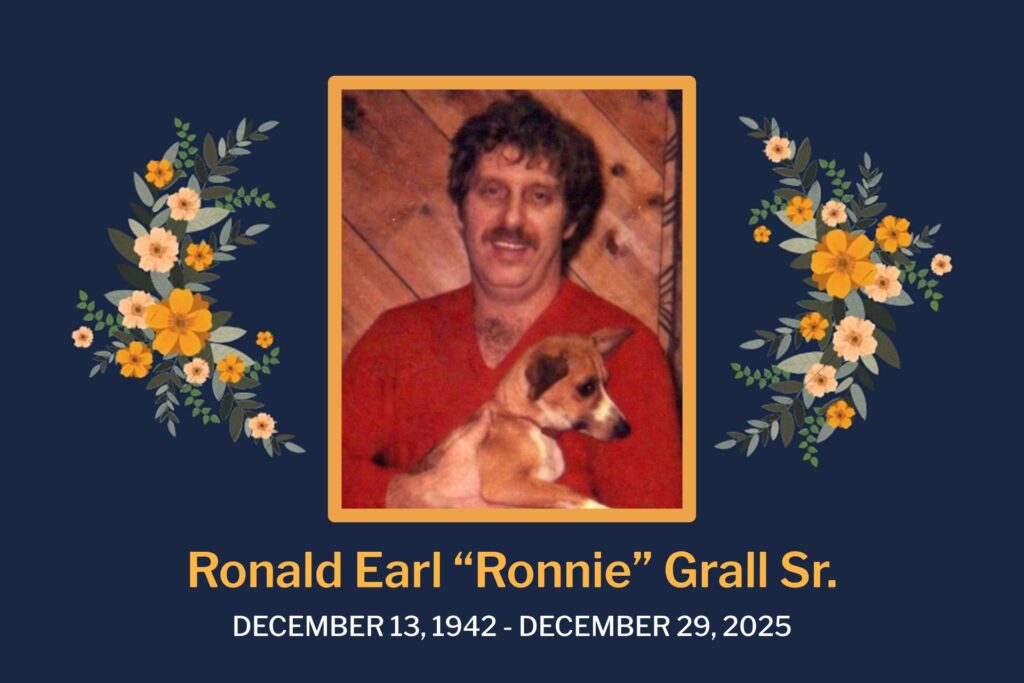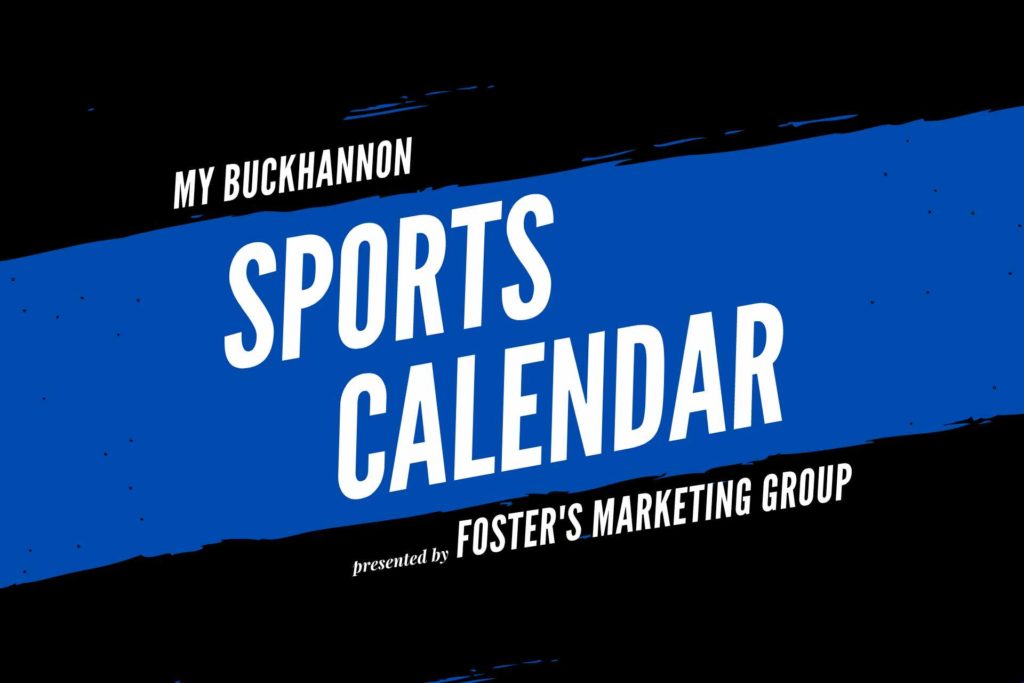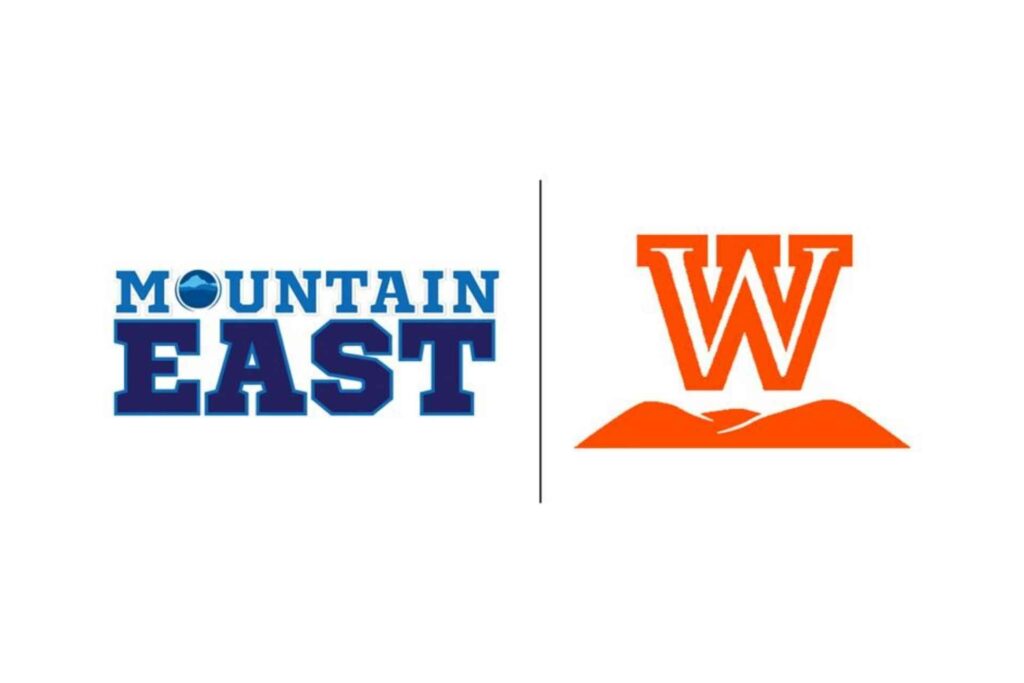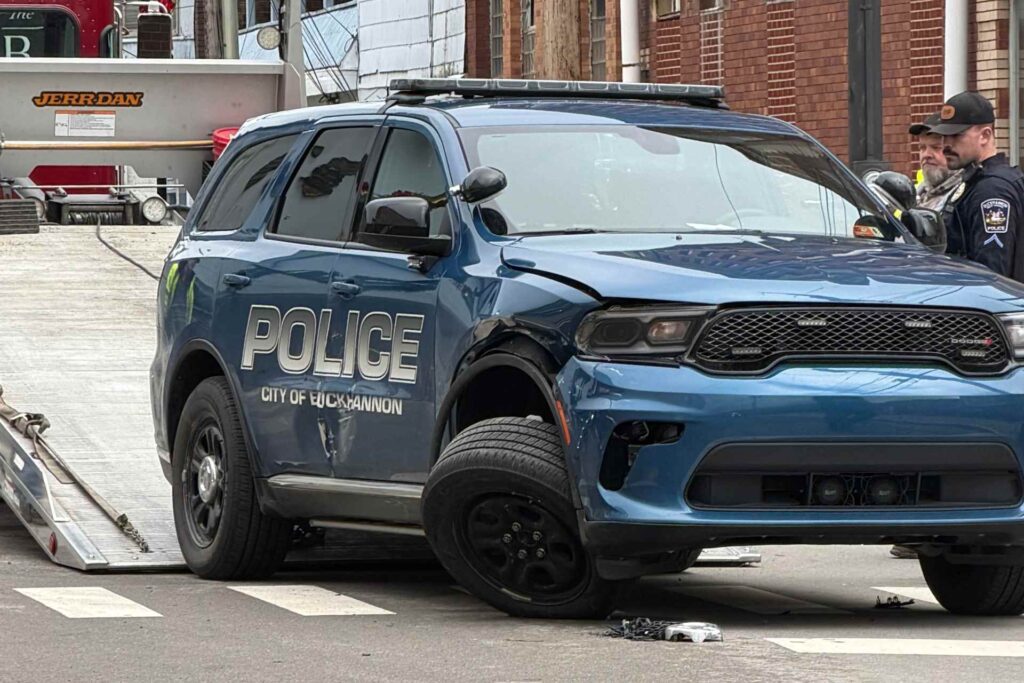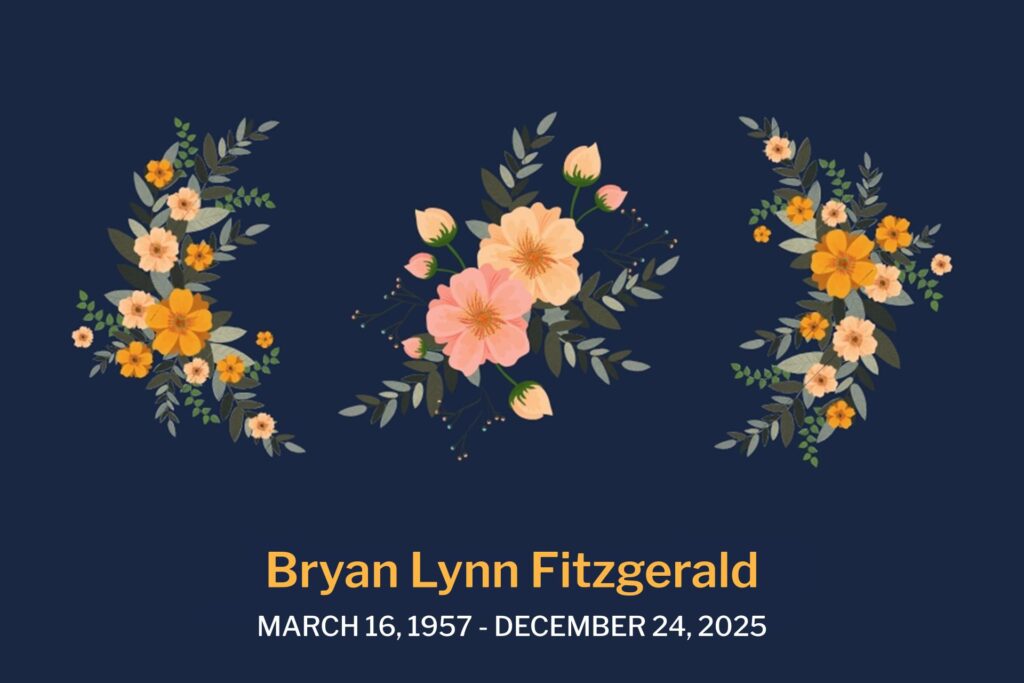BUCKHANNON – Sometimes, the most engaging type of learning occurs in non-traditional forms.
Upshur County Board of Education member Alan Suder has been requesting that Buckhannon-Upshur Middle School students be offered a unique learning opportunity in the form of an after-school Hunter Education Program, which is provided through the West Virginia Division of Natural Resources volunteer instructors and DNR police officers.
And beginning on Monday, Feb. 17, that goal became a reality for middle school students. B-UMS Principal Michael Lynch said the program has thus far proved to be a great success, with B-UMS students saying they’re enjoying learning about hunting, fishing and safety while being out-of-doors.
“We had more than 100 students who initially signed up, and so we will be offering a second course here after school before summer break,” Lynch said. “This class has approximately 35 students and when they complete the 10-hour class, they will be able to apply for their hunting and/or fishing license.”
Suder said he is very excited the school was able to get the classes scheduled so students could commence learning about hunting, fishing, outdoorsmanship and safety.
“As an elected official, I have always listened to the Upshur County citizens’ concerns,” Suder said. “I know from personal experience, when my children needed a hunters’ education course, I had to drive them to another county.”
Suder said he prides himself on being an advocate and voice for the community – and strongly believes the program needs to be offered to students in Upshur County.
“Our children need the experience of outdoor shooting sports, hunting, fishing and safe gun handling practices,” Suder said. “I would like to thank Mr. Michael Lynch, the instructors and all the people involved for allowing this program to move forward.”
Sgt. Timothy White, with the W.Va. DNR Police, said Hunter Education Classes began Monday at B-UMS and wrapped up Friday, Feb. 21.
“The Hunter Education Program has been going on in the state of West Virginia since the early 1970s,” White said. “This is a requirement before you purchase a base hunting license in the state of West Virginia; however, it is not required for a fishing license in the state.”
White said folks born after Jan. 1, 1975 are required to complete a Hunter Education Program course before they can purchase a hunting license in the Mountain State.
“Even folks born before Jan. 1, 1975 take a course, usually, because it is required for other states,” he said. “Lots of folks travel to other states to hunt, and it is a requirement to hunt in other states.”
White said that this class was the first one he has ever taught at B-UMS in the four years since he began working with the counties.
“The classes [generally] target those [in the general public] who are age 15 and up,” White said, adding the first thing folks learn in the Hunter Education Program is ethical behavior while hunting. “They also learn safe handling of firearms and take two tests – the first one being how to handle a firearm and ammunition.”
He said that for the class, the firearms they use are real, but have been disabled so they cannot be fired.
“That makes them safe to bring into schools. The ammunition is also ‘dummy’ ammunition,” White said. “Once we teach them to safely handle the items, we test them. At the end of the course, there is a 50-question written test the students will complete, and they need to score 70 percent to be able to get their Hunter Safety Education Card, which is good for life.”
Other topics covered in the training include firearm safety in the house; how to clean and care for firearms; different ways to handle a gun in the field and the woods; and how to carry a gun.
White said one big topic now is using safe practices with tree stands.
“The accident rate involving tree stands is growing,” White said. “When climbing up to and out of tree stands, hunters are falling and getting hurt or killed, unfortunately. Back when the Hunter Education Program first started in West Virginia in 1971, we had a lot of hunting accidents where people were shot. The Hunter Education Program has lent to a decrease in the number of hunting accidents where people are shot – but now, our biggest occurrence of accidents is with people climbing into and out of tree stands.”
Another issue facing hunters in West Virginia, according to White, is conditioning.
“Our lifestyles today are more sedentary than they used to be,” White said. “Some folks do not do anything physical until it is hunting season, and they go out in the woods and start dragging a 100-pound deer and have a heart attack or a stroke.”
Wildlife identification is another item students in the Hunter Education Program learn about.
“We teach a little on boats and boating safety because some people do hunt out of boats,” White said.
He said they will be offering another Hunter Education Program before the end of the school year.
“We might be able to come in and do it two days during the end of the school year,” he said.
White said he wanted to remind folks they also offer classes to the general public.
“We have public Hunter Education coming up in April at the Buckhannon Fire Department,” White said. “It’s on April 13, 14 and 15. It’s open for either students or the general public and the easiest way to register is to go online at register-ed.com. There is no fee for this class.”
One of the goals of the Hunter Education Program for the public and in the schools is to get people interested in hunting as the number of hunters in West Virginia continues to drop.
“When I grew up, everybody hunted,” White said. “Not today. We are trying to bring programs out for kids to get them involved in outdoor activities, but we are competing with video games, and I honestly think back in the 1970s and 1980s, people depended on wild game to supplement their food at home. Nowadays, it doesn’t seem to matter as much because there are other places people can get assistance.”
White said the Hunter Education Program classes are stellar courses, and he encourages folks to take the class.
The minimum hunting age for deer hunting in West Virginia is eight. Deer hunters age eight to 14 must be accompanied by an adult that is age 21 or over and has a hunting license. When youth turn 15, they must obtain their own hunting licenses.
